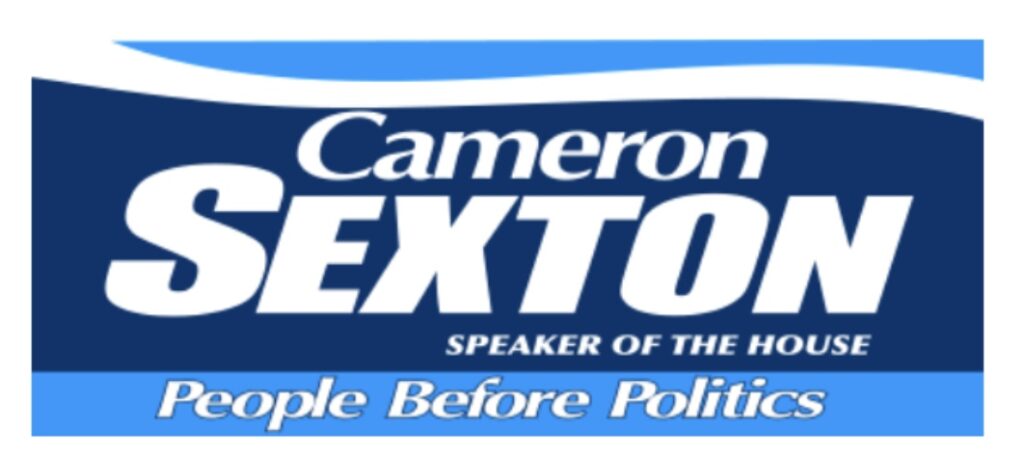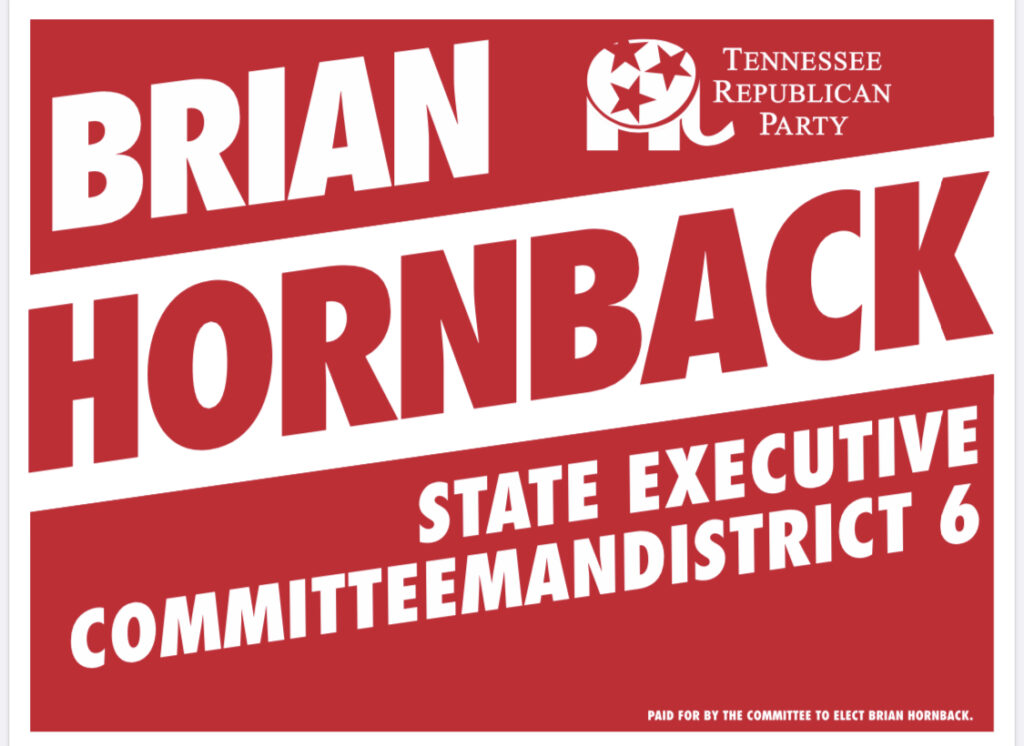Sometimes it is a good exercise to connect the dots. Sometimes you are right, sometimes you are a tad off and sometimes you are so off, it ain’t even close.
This year, Rep. Martin Daniel was a late hour vote for the gas tax. A candidate last year NOT supported by the Governor’s family or many of his colleagues. So, remember early in last years session when Daniel had his free speech bill that got labeled the “isis bill” for his answer to a question in house committee, it died. This year, State Rep. Eddie Smith introduced a caption bill. Rep. Daniel introduced a different bill which got labeled the “Milo bill”. The Milo bill got no where this year.
The Smith bill got an amendment by Rep. Harry Brooks with almost the same verbiage as the 2016 Daniel bill will some rewriting, like higher education instead of college. Interesting, all three Daniel, Brooks and Smith voted for the gas tax.
Is the conspiracy real or is it fiction? We may never know. The amendment and bill are part of this post, below.
In 2017, State Representative Eddie Smith and State Senator Doug Overbey passed HB0538, read it here. This year Rep. Martin Daniel‘s bill HB0739, read it here, it was named as the “Milo bill”, garnering Daniel some media attention, because he just doesn’t get enough. Daniel’s bill went no where.
An Amendment by Rep. Harry Brooks was added to HB 0538, Senator Dolores Gresham amended the bill in the Senate.
Education Administration & Planning 1
Amendment No. 1 to HB0538
Brooks H Signature of Sponsor
AMEND Senate Bill No. 723 House Bill No. 538*
by deleting all language after the enacting clause and substituting instead the following: SECTION 1. Tennessee Code Annotated, Title 49, Chapter 7, is amended by adding
Sections 2 through 9 of this act as a new part.
SECTION 2. This part shall be known and may be cited as the “Campus Free Speech
Protection Act.”
SECTION 3. The requirements of this part shall apply to every public institution of
higher education in this state. SECTION 4.
(a) The general assembly finds and declares that public institutions of higher education in Tennessee are not immune from the sweep of the First Amendment to the United States Constitution or Article I, Section 19, of the Tennessee Constitution, which guarantees freedom of speech and expression.
(b) It is the intent of the general assembly that the public institutions of higher education embrace a commitment to the freedom of speech and expression for all students and all faculty.
(c) It is further the intent of the general assembly that public institutions of higher education, including their faculty, shall not require students or other faculty to adopt or to indicate their adherence to beliefs or orthodoxies on any particular political, philosophical, religious, social, or other such subject, although institutions may require students and faculty to conform their conduct to the requirements of law and policy.
(d) It is further the intent of the general assembly that public institutions of higher education not stifle freedom of speech and expression by implementing vague or overbroad speech codes, establishing free speech zones, imposing unconstitutional prior restraints on speech, or disinviting speakers based on the anticipated reaction or opposition of others to the content of speech.
SECTION 5. As used in this part, unless the context requires otherwise:
(1) “Constitutional time, place, and manner restrictions” means restrictions on the time, place, and manner of free speech that do not violate the First Amendment to
the United States Constitution or Article I, Section 19 of the Tennessee Constitution that are reasonable, content- and viewpoint-neutral, narrowly tailored to satisfy a significant institutional interest, and leave open ample alternative channels for the communication of the information or message to its intended audience;
(2) “Faculty” or “faculty member” means any person, whether or not the person is compensated by a public institution of higher education, and regardless of political affiliation, who is tasked with providing scholarship, academic research, or teaching. For purposes of this part, the term “faculty” shall include tenured and non-tenured professors, adjunct professors, visiting professors, lecturers, graduate student instructors, and those in comparable positions, however titled. For purposes of this part, the term “faculty” shall not include persons whose primary responsibilities are administrative or managerial;
(3) “Free speech” means speech, expression, or assemblies protected by the First Amendment to the United States Constitution or Article I, Section 19 of the Tennessee Constitution, verbal or written, including, but not limited to, all forms of peaceful assembly, protests, demonstrations, rallies, vigils, marches, public speaking, distribution of printed materials, carrying signs, displays, or circulating petitions. “Free speech” does not include the promotion, sale, or distribution of any product or service;
(4) “Institution” means an institution of public higher education in this state; and (5) “Student” means:
(A) An individual currently enrolled in a course of study at the institution; and
(B) An organization that is comprised entirely of individuals currently enrolled in a course of study at the institution, that is registered with an institution pursuant to institutional rules.
SECTION 6.
(a) The governing body of every institution shall adopt a policy that affirms the
following principles of free speech, which are the public policy of this state:
(1) Students have a fundamental constitutional right to free speech; (2) An institution shall be committed to giving students the broadest
possible latitude to speak, write, listen, challenge, learn, and discuss any issue, subject to Section 9;
(3) An institution shall be committed to maintaining a campus as a marketplace of ideas for all students and all faculty in which the free exchange of ideas is not to be suppressed because the ideas put forth are thought by some or even by most members of the institution’s community to be offensive, unwise, immoral, indecent, disagreeable, conservative, liberal, traditional, radical, or wrong-headed;
(4) It is for an institution’s individual students and faculty to make judgments about ideas for themselves, and to act on those judgments not by seeking to suppress free speech, but by openly and vigorously contesting the ideas that they oppose;
(5) It is not the proper role of an institution to attempt to shield individuals from free speech, including ideas and opinions they find offensive, unwise, immoral, indecent, disagreeable, conservative, liberal, traditional, radical, or wrong-headed;
(6) Although an institution should greatly value civility and mutual respect, concerns about civility and mutual respect shall never be used by an institution as a justification for closing off the discussion of ideas, however offensive, unwise, immoral, indecent, disagreeable, conservative, liberal, traditional, radical, or wrong-headed those ideas may be to some students or faculty;
(7) Although all students and all faculty are free to state their own views about and contest the views expressed on campus, and to state their own views about and contest speakers who are invited to express their views on the institution’s campus, they may not substantially obstruct or otherwise substantially interfere with the freedom of others to express views they reject or even loathe. To this end, an institution has a responsibility to promote a lively and fearless freedom of debate and deliberation and protect that freedom;
(8) An institution shall be committed to providing an atmosphere that is most conducive to speculation, experimentation, and creation by all students and all faculty, who shall always remain free to inquire, to study and to evaluate, and to gain new understanding;
(9) The primary responsibility of faculty is to engage an honest, courageous, and persistent effort to search out and communicate the truth that lies in the areas of their competence;
(10) Although faculty are free in the classroom to discuss subjects within areas of their competence, faculty shall be cautious in expressing personal views in the classroom and shall be careful not to introduce controversial matters that have no relationship to the subject taught, and especially matters in which they have no special competence or training and in which, therefore, faculty’s views cannot claim the authority accorded statements they make about subjects within areas of their competence; provided, that no faculty will face adverse employment action for classroom speech, unless it is not reasonably germane to the subject matter of the class as broadly construed, and comprises a substantial portion of classroom instruction;
(11) An institution shall maintain the generally accessible, open, outdoor areas of its campus as traditional public forums for free speech by students;
(12) An institution shall not restrict students’ free speech only to particular areas of the campus, sometimes known as “free speech zones” ;
(13) An institution shall not deny student activity fee funding to a student organization based on the viewpoints that the student organization advocates;
(14) An institution shall not establish permitting requirements that prohibit spontaneous outdoor assemblies or outdoor distribution of literature, although an institution may maintain a policy that grants members of the college or university community the right to reserve certain outdoor spaces in advance;
(15) An institution shall not charge students security fees based on the content of their speech, the content of the speech of guest speakers invited by students, or the anticipated reaction or opposition of listeners to speech;
(16) An institution shall allow all students and all faculty to invite guest speakers to campus to engage in free speech regardless of the views of guest speakers; and
(17) An institution shall not disinvite a speaker invited by a student, student organization, or faculty member because the speaker’s anticipated speech may be considered offensive, unwise, immoral, indecent, disagreeable, conservative, liberal, traditional, radical, or wrong-headed by students, faculty, administrators, government officials, or members of the public.
(b) The policy adopted pursuant to subsection (a) shall be made available to
students and faculty annually through one or more of the following methods:
(1) Published annually in the institution’s student handbook and faculty
handbook, whether paper or electronic;
(2) Made available to students and faculty by way of a prominent notice
on the institution’s internet site other than through the electronic publication of the policy in the student handbook and faculty handbook;
(3) Sent annually to students and employees to their institutionally- provided email address; or
(4) Addressed by the institution in orientation programs for new students and new faculty.
(c) Nothing in this section shall be construed to grant students the right to disrupt previously scheduled or reserved activities occurring in a traditional public forum. SECTION 7.
(a) With respect to disciplining students for their speech, expression, or assemblies, an institution shall adopt a policy on “student-on-student harassment” defining the term consistent with and no more expansively than the language contained in subsection (b).
(b) As used in this section, “student-on-student harassment” means unwelcome conduct directed toward a person that is discriminatory on a basis prohibited by federal, state, or local law, and that is so severe, pervasive, and objectively offensive that it effectively bars the victim’s access to an educational opportunity or benefit.
SECTION 8. Nothing in this part shall require an institution to fund costs associated with
student speech or expression. An institution shall not impose costs on students or student organizations on the basis of the anticipated reaction or opposition to a person’s speech by listeners.
SECTION 9. Nothing contained in this part shall be construed as prohibiting an institution from imposing measures that do not violate the First Amendment to the United States Constitution or Article I, Section 19 of the Tennessee Constitution such as:
(1) Constitutional time, place, and manner restrictions;
(2) Reasonable and viewpoint-neutral restrictions in nonpublic forums;
(3) Restricting the use of the institution’s property to protect the free speech
rights of students and faculty and preserve the use of the property for the advancement of the institution’s mission;
(4) Prohibiting or limiting speech, expression, or assemblies that are not protected by the First Amendment to the United States Constitution or Article I, Section 19 of the Tennessee Constitution; or
(5) Content restrictions on speech that are reasonably related to a legitimate pedagogical purpose, such as classroom rules enacted by faculty.
SECTION 10. The governing body of each public institution of higher education in this
state is authorized to promulgate rules to effectuate the purposes of this act in accordance with the Uniform Administrative Procedures Act, compiled in title 4, chapter 5.
SECTION 11. For purposes of promulgating rules, this act shall take effect upon becoming a law, the public welfare requiring it. For all other purposes, this act shall take effect January 1, 2018, the public welfare requiring it.
Now rewind to 2016, do you remember Rep. Daniel’s bill Co Sponsored by Rep. Alexander, Goins, Carter, Zachary, Ragan, Farmer, Casada, Butt that became known as the “Isis bill”, read it here.
This bill requires the governing board of each state institution of higher education to adopt a policy on freedom of speech and expression for students of the institution and include such policy in the institution’s student code of conduct that:
(1) Confirms that freedom of speech is a fundamental right and that institutions are committed to free and open inquiry by students in all matters;
(2) Guarantees students the broadest possible latitude to speak, write, listen, challenge, and learn to discuss any issue that presents itself on campus;
(3) Does not shield individuals from ideas and opinions considered unwelcome, disagreeable, or even deeply offensive; or discourage or prohibit any type of speech or expressive activity, except as provided in this section;
(4) Promotes a climate of mutual respect and concerns about civility; provided, that lack of mutual respect or civility will not be a justification for closing off the discussion of ideas no matter how offensive or disagreeable the ideas may be to members of the community;
(5) Allows the institutions to restrict expression only for instances that include: violations of state or federal law; expression that a court has deemed defamation; genuine threats or harassment; an unjustifiable invasion of privacy or confidentiality; an action that directly conflicts with the function of the university; or reasonable viewpoint and content-neutral restrictions on the time, place, and manner of expression, consistent with this Act and in service of a significant institutional interest; provided, that these restrictions are clear, published, and provide ample alternative means for expression;
(6) Does not allow the institution to suppress debate or deliberation because the ideas being debated or deliberated upon are considered to be offensive, unwise, immoral, or wrong;
(7) Allows students to openly and vigorously contest ideas that the institution or members of the institution’s community may oppose;
(8) Permits students to engage in debate and deliberation as part of the mission of the institution;
(9) Authorizes a student to criticize and contest the views of the institution’s community; provided, that the student shall not obstruct or otherwise interfere with the freedom of others to express views contrary to the student; and
(10) Promotes a lively and fearless freedom of debate and deliberation while protecting free speech when the institution or members of the institution condemn or attempt to restrict speech.
This bill requires that the policy include a bill of student rights (explained in detail in the bill) and requires institutions to allow peaceful assembly and the expression of ideas and opinions. This bill specifies that the outdoor campus areas on institutions of higher education will be deemed traditional public forums, and that institutions of higher education may maintain and enforce reasonable time, place, and manner restrictions in service of a significant institutional interest only when such restrictions employ clear, published, content- and viewpoint-neutral criteria, and provide for ample alternative means of expression. Any such restrictions must allow for members of the institution’s community to spontaneously and contemporaneously assemble. This bill provides that a member of the public, who is not employed by the institution or enrolled at the institution as a student, may be required to obtain prior permission or a permit from the institution.
This bill specifies that any requirements applied by the institution to an individual or group must be reasonable content- and viewpoint-neutral, time, place, and manner restrictions; provided, that the restriction is necessary and narrowly tailored to serve a significant state interest and provides ample alternative means of expression, and is consistent with this bill. This bill further specifies that it does not limit the right to student expression at any public place on the premises of the institution; provided, that the expressive activity or related student conduct does not substantially disrupt essential activities and functions of the institution.
This bill requires the governing boards of each institution to cause the institution to provide periodic notice of the free speech protections created pursuant to this bill to students of the institution. This bill establishes specific requirements for such notice.






















